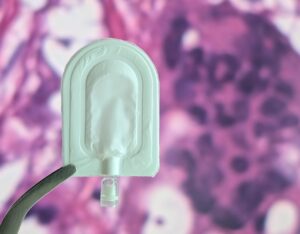
Update – May 9, 2024
Breakthrough T1D Canada has been clarifying elements of Bill C-64 – National Pharmacare Act with the government and we wanted to share what we’ve learned. We will continue to update as we learn more and share with our T1D community and stakeholders:
Frequently Asked Questions
Q: If I currently have private health insurance that covers insulins NOT on the national pharmacare list, will I still be covered for those?
A: Yes, the national pharmacare plan will NOT replace existing private or public insurance coverage. It is meant to be additive.
Q: If I currently have private health insurance that covers insulins on the national pharmacare list, do I need to switch to the government-funded plan?
A: No, you can choose to remain on your existing private health insurance for this coverage.
Q: If I am currently on a public provincial plan that covers insulins NOT on the national pharmacare list, will I still be covered for those?
A: Yes, the national pharmacare plan will NOT replace existing public or private insurance coverage. It is meant to be additive.
Q: If private and public insurance will NOT be replaced by national pharmacare, what is the benefit of a new pharmacare program?
A: The national pharmacare plan will potentially augment existing provincial plans. It can also benefit those who are uninsured, underinsured or those who have a co-pay with private insurance and national pharmacare makes access more affordable.
Q: If I have private or public insurance and I am using an insulin on the national pharmacare list, who will pay for it?
A: If you are using an insulin on the national pharmacare list, you will have the choice of remaining on a publicly-funded plan or your private insurance plan.
Q: Is the backgrounder list of insulins a final list of what pharmacare will cover?
A: The backgrounder is meant to be a minimum starting point. The goal is to expand this list through negotiations with provinces and territories.
Q: Will the national pharmacare insulin list be the same across all provinces and territories?
A: The list provided is for discussion with Provinces and Territories for specific coverage within that Province and Territory. There may be some differences across provinces, depending on what is negotiated in agreements between provinces and territories and the federal government.
Q: Will my device be covered under the diabetes devices and supplies fund?
A: The federal government is consulting with provinces, territories, and stakeholders to identify gaps in coverage to focus on related to the special devices fund. More information will be provided following those discussions.
March 8, 2024
The last week of February 2024, Breakthrough T1D Canada (then JDRF) staff joined Health Minister Mark Holland in Ottawa as the federal government officially announced the tabling of a framework for a National Pharmacare plan (Bill C-64). This is the first major step towards a national universal pharmacare plan for Canada and a historic milestone for all Canadians living with type 1 diabetes (T1D) as the government announced that one of the first drugs that will be covered is insulin. The announcement also included a specific intention from the government to provide universal, single-payer coverage for diabetes devices.
While this is all good news for Canada’s T1D community, families hoping to take advantage of this coverage will have to wait as several steps must take place before pharmacare gets implemented.
Now that this legislation is tabled, what happens next?
Legislative Process
Bills (like Bill C-64, An Act respecting pharmacare) are proposed laws (not in effect) and must be introduced in either the House of Commons or the Senate. Like all bills under Canadian federal law, Bill C-64 (Pharmacare Act) must follow the legislative process of debate, review, and voting before officially becoming law.
- Tabled on February 29, 2024 Bill C-64 entered and completed the first stage of this process on the same day. Known as first reading, the bill was formally tabled in the House of Commons.
- A closer examination and debate over the principles of the bill will then take place during second reading, culminating in parliamentarians voting on whether the bill continues the process.
- Should that vote succeed, the bill is then sent to the committee stage where a smaller group of parliamentarians will study the bill in detail, section-by-section, and often inviting government officials and/or experts (sometimes even advocates) as witnesses, and vote on amendments before delivering its findings in a report back to the chamber.
- At the report stage, parliamentarians can debate on the amendments from committee or suggest new changes to the bill before it becomes finalized in the next stage.
- At third reading, parliamentarians debate and vote on the final form of the bill. If the bill fails this vote or if a decision is not made before a session of Parliament ends, the bill stops going through the legislative process and is officially lost. Should the bill pass the vote at third reading, it is then sent to the Senate where it must succeed at every stage of the process again (from first reading to third reading) before receiving Royal Assent.
- Once the bill has passed through the House of Commons and the Senate in identical form, the bill is given to the Governor General for Royal Assent and at that point it officially becomes law.
For more information on the legislative process, please visit: https://learn.parl.ca/understanding-comprendre/en/how-parliament-works/how-a-bill-becomes-a-law/
Provinces and Territories
Despite the contents of the bill, provincial and territorial governments are still responsible for the management, organization, and delivery of health care services in Canada. Should Bill C-64 pass the legislative process and receive royal assent, the federal government then has to work with willing provinces and territories (PTs) to implement coverage for specific diabetes medications through bilateral agreements, per the legislation.
Funding will augment, rather than replace, existing PT spending on public drug benefit programs. The governments of each PT must negotiate and enter into an agreement with the federal government before national pharmacare can be expected to roll out.
As the Bill and pharmacare itself are still in early stages, it is yet to be determined what would happen with PTs that elect not to participate in the program. Following the news of a reached agreement between the federal Liberals and NDP on national pharmacare, media has reported that the governments in Alberta and Quebec have announced their intention to opt out of this plan. The Ontario government also has not committed to a national pharmacare plan and has opted to assess the details first. While compensation is on the table, further discussions are expected to take place in the coming weeks now that the Bill has been tabled and its contents made public.
What do we know right now?
If passed, bill C-64 will ensure that following agreement with provinces and territories, people living with T1D in Canada will have access to insulin. Insulin can cost in the range of $900-$1,700 per year per individual, depending on the type and dosage required.
The Government will be launching discussions with PT on providing universal, single-payer coverage based on this list of diabetes drugs and insulins:
| Drug Class | Brand Names | Generic Names |
| Combination Formulations | Synjardy | Empagliflozin & metformin |
| Jentadueto | Linagliptin & metformin | |
| Komboglyze | Saxagliptin & metformin | |
| Insulins | Trurapi, Kirsty | Aspart biosimilar |
| Apidra | Glulisine | |
| Admelog | Lispro biosimilar | |
| Humulin R, Novolin ge Toronto | Regular, Human | |
| Entuzity | Concentrated Regular, Human | |
| Hypurin Regular Insulin Pure | Pork regular insulin | |
| Hypurin Nph Insulin Isophane Pork | Insulin Isophane, Pork Pure | |
| Humulin-N, Novolin GE NPH | Isophane Human, NPH | |
| Levemir | Detemir | |
| Basaglar | Glargine biosimilar | |
| Semglee | Glargine biosimilar | |
| Humulin 30/70, Novolin 30/70 | Reg-Isophane, NPH Human | |
| Insulin Secretagogues | Diamicron MR | Gliclazide |
| Glyburide | ||
| Biguanides | Glucophage | Metformin |
| SGLT2 Inhibitors | Forxiga | Dapagliflozin |
Separate from Bill C-64, the federal government is announcing its intention to establish a fund to support access to diabetes devices and supplies (such as continuous glucose monitors). Further details regarding this fund will be provided following discussions with PT partners, who will be essential partners to the roll out.
Next Steps
Bill C-64 is still in its early stages, and we expect it to continue to evolve and develop as the government consults with provinces, territories, Indigenous peoples, and other partners and stakeholders. As it makes its way through the House of Commons and then the Senate, you can read the debates and follow its legislative process on the federal government’s website here.
In its current state of the bill at first reading, should the bill receive Royal Assent:
- The Health Minister will establish a committee of experts within thirty days that will make recommendations concerning the options for operating and financing a national, universal, single-payer prescription drug insurance plan.
- Ministerial outreach will commence on next steps, including discussions with provinces and territories regarding bilateral agreements.-
- The Health Minister will request that within one year on which this Act receives royal assent, the Canadian Drug Agency:
- Prepare a list of essential prescription drugs and related products to inform the development of a national formulary
- Develop a national bulk purchasing strategy
What is Breakthrough T1D Canada’s role?
Our work is not done. We will still have a role to play in advocating to ensure that the right list of essential type 1 diabetes devices and treatments are part of the national formulary, as well as ensuring the special fund for provinces on devices does provide equitable and affordable access. Patient choice will be paramount in our advocacy strategy around pharmacare.
For more information:
• Government Backgrounder: https://www.canada.ca/en/health-canada/news/2024/02/universal-access-to-diabetes-medications-and-diabetes-device-fund-for-devices-and-supplies.html
• JDRF News Release: https://breakthrought1d.ca/news/canadians-living-with-type-1-diabetes-will-have-improved-access-to-the-treatments-and-devices-they-need-through-a-new-national-pharmacare-program/



